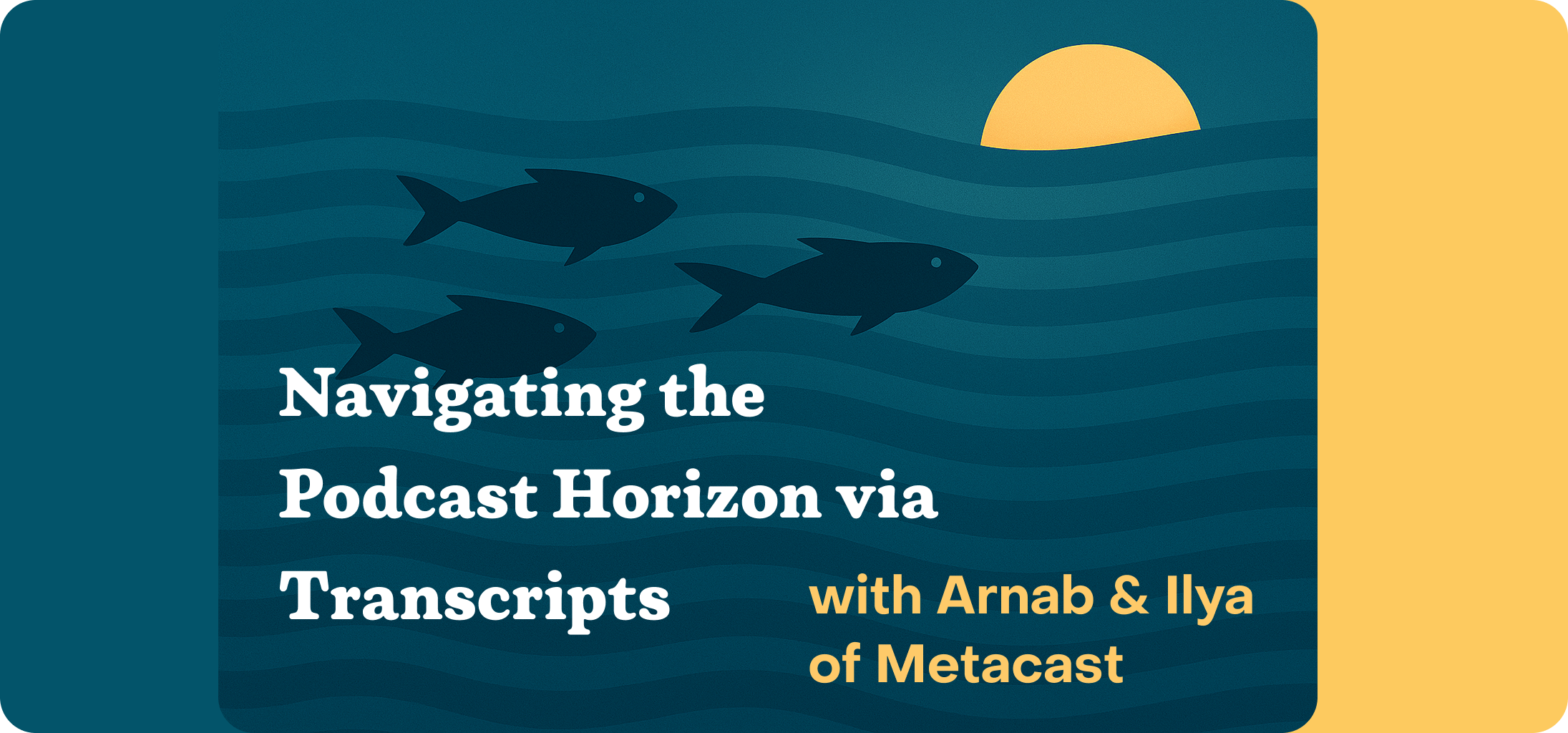
The podcast ecosystem stands at a fascinating crossroads, where technological innovation meets creative freedom. In a recent episode of Sound Strategy, co-founders of Metacast, Arnab Deka and Ilya Bezdelev, unpacked the complex dynamics driving podcast technology and culture, revealing insights that challenge conventional thinking about audio content creation and consumption.
At the heart of their discussion lies a profound observation about podcasting's fundamental nature: its decentralized structure is simultaneously its greatest strength and most significant weakness. Unlike traditional media platforms that require extensive gatekeeping and substantial financial investment, podcasting allows anyone with passion and a microphone to create and distribute content globally. This democratization means that niche topics—from startup journey narratives to hyper-specific technical discussions—can find their audience without traditional media's barriers.
The conversation delved deep into the technological challenges facing podcast platforms, with a particular focus on transcript technology. Metacast's founders argue that transcripts are far more than mere text representations of audio; they are transformative layers that can unlock unprecedented content discoverability and interaction. By treating transcripts as dynamic, searchable interfaces rather than static documents, podcast platforms could revolutionize how listeners engage with long-form audio content.
Artificial intelligence emerged as a nuanced topic, with Deka and Bezdelev offering a balanced perspective on its potential and limitations. While recognizing AI's capacity to streamline podcast production—from automatic show notes generation to audio quality enhancement—they cautioned against using AI as a replacement for the human connection that makes podcasting unique. The emotional resonance of hearing a real person's voice, complete with their unique cadence and personality, remains irreplaceable.
Discovery remains the most significant challenge in the podcasting ecosystem. Despite the incredible diversity of content available, listeners struggle to find shows that match their interests, especially when it comes to older, evergreen episodes. The current podcast landscape often prioritizes new content, effectively rendering rich, valuable older episodes nearly invisible. This systemic limitation represents a massive opportunity for innovative platforms willing to reimagine content discovery.
The open nature of podcasting—its resistance to centralized control—emerged as a critical theme. Unlike YouTube or Spotify, which increasingly seek to create closed ecosystems, podcasting maintains a remarkable commitment to openness. This was particularly evident during challenging periods like the COVID-19 pandemic, where podcast platforms provided space for diverse perspectives that might have been censored on more tightly controlled platforms.
From a technological perspective, Metacast represents an intriguing approach to solving podcast interaction challenges. By prioritizing transcript functionality and creating tools that allow seamless navigation between text and audio, they're addressing fundamental user experience problems that have long plagued podcast consumption. Their vision extends beyond simple transcription, aiming to create a more interactive, discoverable podcast ecosystem.
The conversation also highlighted the incredible diversity within podcasting. From niche shows documenting startup journeys to in-depth interviews exploring complex topics, podcasting offers an unparalleled medium for knowledge sharing and human connection. The low barrier to entry means that expertise and passion can find expression in ways traditional media never allowed.
As podcast technology continues evolving, platforms like Metacast represent more than just technological solutions—they're reimagining how we interact with audio content. By treating transcripts as dynamic, searchable interfaces and focusing on user experience, such innovations promise to make podcasting more accessible, discoverable, and engaging for both creators and listeners.
The future of podcasting lies not in technological complexity, but in creating more human, more connected experiences. As platforms continue developing tools that respect both creator intention and listener convenience, we can anticipate a podcast ecosystem that is more diverse, more discoverable, and ultimately more meaningful. The revolution is not just technological—it's fundamentally about enhancing human communication and knowledge sharing.
Don't forget to listen to Arnab and Deka on their podcast at: https://www.metacastpodcast.com/

DeepCast Creator serves the entire spectrum of podcast creators, including indie podcasters, podcast studios, agencies, podcast networks, and supporting teams. It caters to newcomers, established podcasters, and large teams managing multiple shows.
You can use either a single account for both (for seamless switching between creator and listener roles) or separate accounts (using show owner email for Creator and personal email for listener features). Each approach has benefits like simplified login or clear separation of activities.
Current addable fields include funding links (Patreon, PayPal, Buy me a coffee, Ko-fi), social media handles, Spotify URL, and website. More fields will be added in future updates.
DeepCast polls for updates based on your typical publishing schedule to balance timely updates with resource management. Support can be contacted for immediate updates when needed.